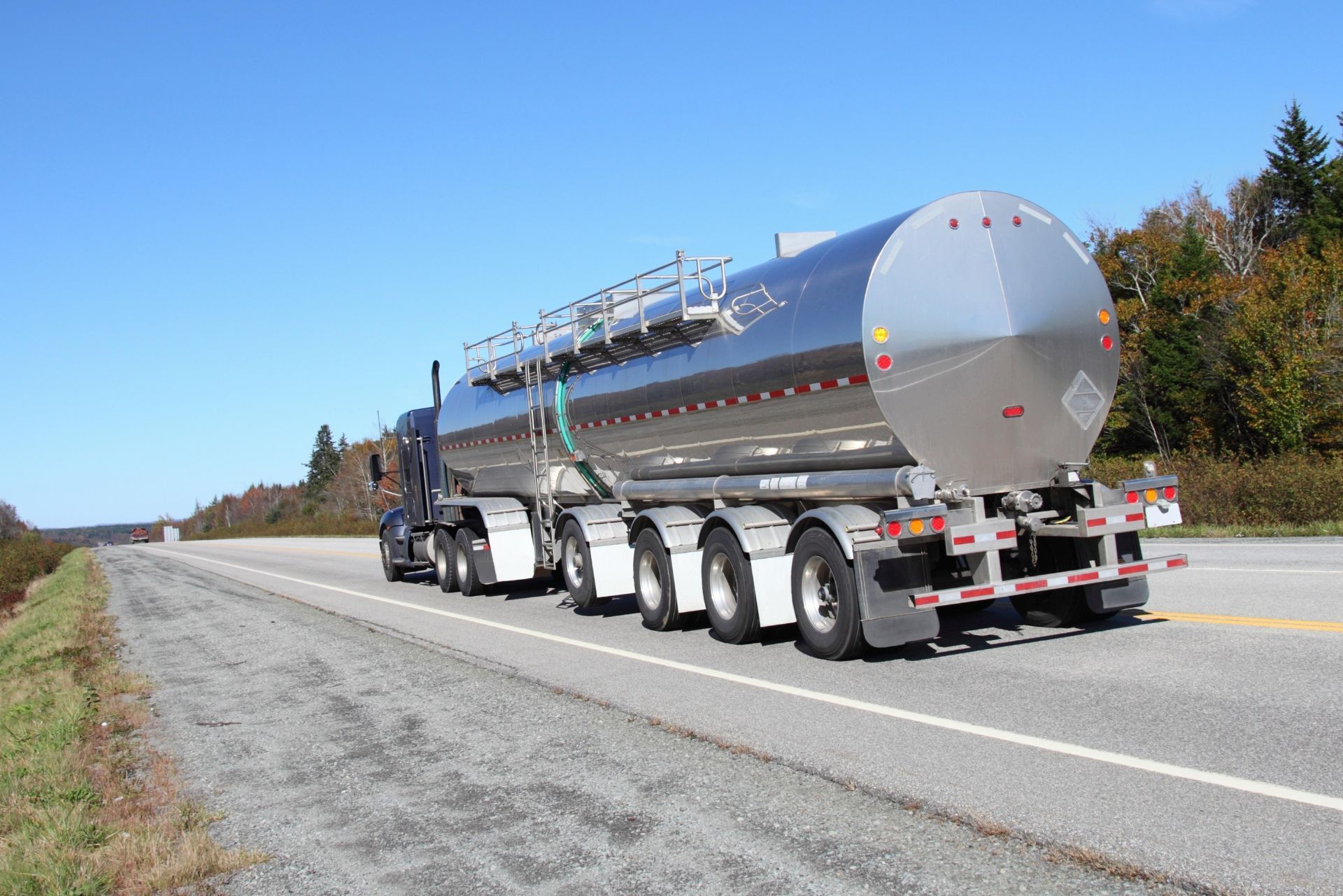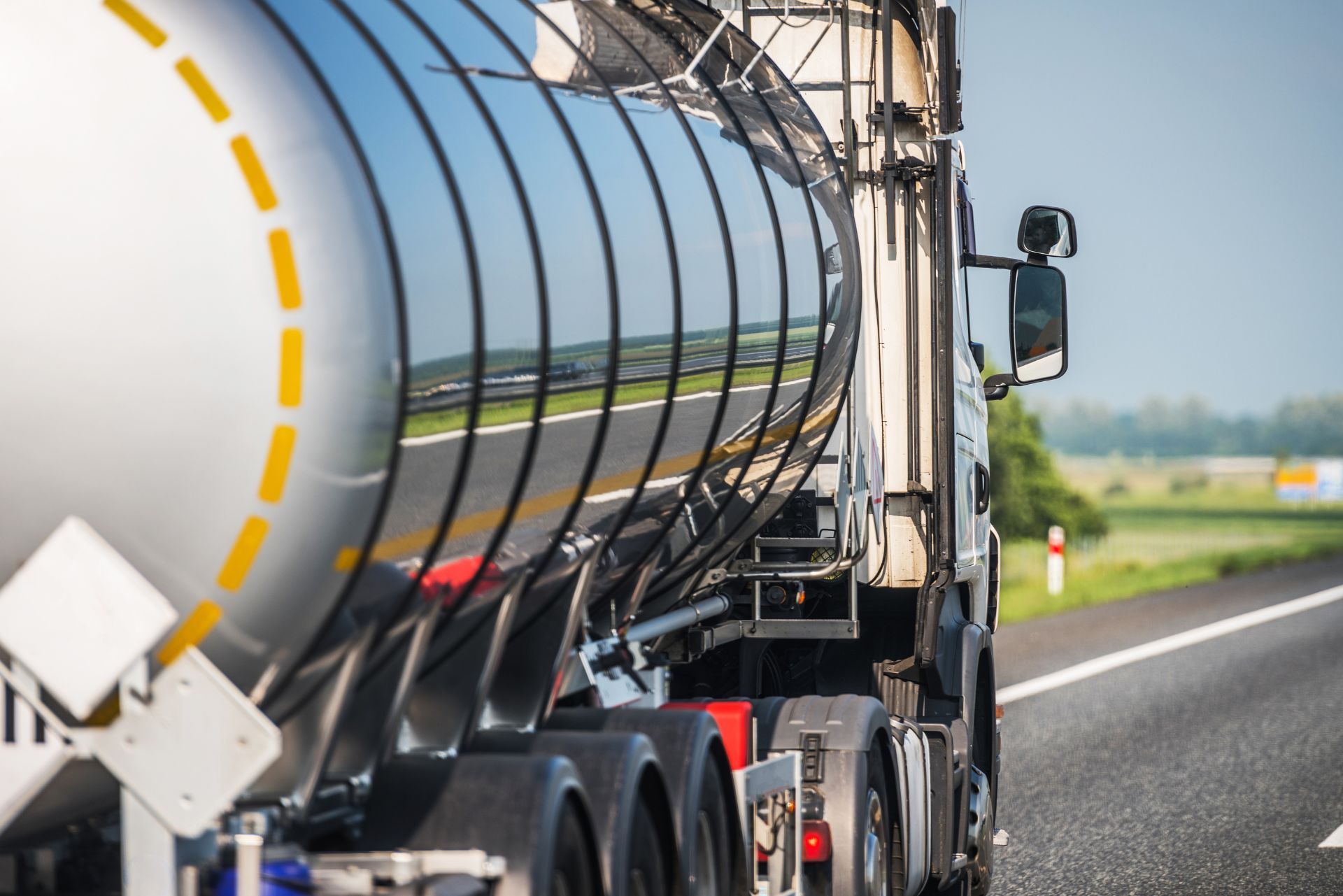Top 3 Recommended Policies

Operating in the oil and gas trucking sector involves navigating a complex landscape of risks, regulations, and environmental responsibilities. From transporting hazardous materials to managing the health impacts of emissions, businesses in this industry face unique challenges that make comprehensive insurance coverage essential. This article explores everything you need to know about insurance tailored for oil and gas trucking businesses, helping you understand the types of coverage available, the importance of environmental liability insurance, and how emerging technologies are shaping the future of risk management in this critical industry.
Understanding the Risks in Oil & Gas Trucking
Trucking in the oil and gas industry is inherently risky due to the nature of the cargo, the operational environment, and regulatory scrutiny. Freight trucks in this sector are significant contributors to environmental pollution, responsible for approximately 10% of nitrogen oxides (NOx) and 12% of carbon dioxide (CO2) emissions in the continental United States. These emissions not only impact the environment but also pose public health risks, with freight trucking accounting for nearly two-fifths of all transportation-related health damages in the U.S., amounting to an estimated $47 billion annually.
Given these factors, oil and gas trucking companies must prepare for a wide range of potential liabilities, from environmental damage claims to accidents involving hazardous materials. The stakes are high, and insurance plays a pivotal role in protecting businesses from financial losses that could otherwise be devastating. In addition to traditional liability insurance, companies are increasingly investing in specialized coverage that addresses the unique challenges of transporting volatile substances. This includes pollution liability insurance, which can help cover costs associated with cleanup efforts and legal fees arising from environmental incidents.
Moreover, the operational environment for oil and gas trucking is fraught with challenges, including navigating remote locations, dealing with extreme weather conditions, and managing the complexities of loading and unloading hazardous materials. Drivers face the constant pressure of tight schedules and the need for compliance with stringent regulations, which can lead to fatigue and increase the risk of accidents. To mitigate these risks, many companies are implementing advanced training programs and utilizing technology such as GPS tracking and telematics to monitor driver behavior and vehicle performance. These tools not only enhance safety but also improve efficiency, ultimately benefiting both the trucking companies and the environment.
For a deeper dive into the environmental impact of freight trucking, you can explore this
comprehensive study on emissions and health impacts.

Key Types of Insurance for Oil & Gas Trucking Businesses
Insurance needs for oil and gas trucking businesses are multifaceted, reflecting the complexity of the risks involved. Here are the primary types of coverage companies should consider:
1. Commercial Auto Insurance
This is the foundational insurance for any trucking business. It covers physical damage to trucks, liability for bodily injury or property damage caused by accidents, and medical payments. Given the heavy loads and hazardous materials often transported, coverage limits should be carefully evaluated to ensure adequate protection. Additionally, companies should consider the inclusion of uninsured and underinsured motorist coverage to safeguard against potential losses caused by other drivers who lack sufficient insurance, which is particularly important in regions with high traffic volumes.
2. Environmental Liability Insurance
Environmental liability insurance is increasingly critical in the oil and gas sector. It protects businesses against claims arising from pollution or environmental damage caused by their operations. Studies indicate that the development of environmental liability insurance has a direct effect on reducing industrial carbon emissions, particularly in industrially developed areas. This type of insurance not only mitigates financial risks but also encourages companies to adopt more sustainable practices.
Research also shows that environmental liability insurance’s effectiveness varies with the level of financial development in the region, highlighting the importance of tailored insurance solutions. Furthermore, as regulatory frameworks around environmental protection become more stringent, having this insurance can help businesses navigate compliance challenges and avoid hefty fines. Learn more about the impact of environmental liability insurance in this insightful study on industrial carbon emissions.
3. Cargo Insurance
Cargo insurance covers the goods being transported, protecting against loss or damage during transit. For oil and gas trucking, this is crucial due to the high value and hazardous nature of the cargo. Companies should also assess the specific risks associated with different types of cargo, as certain materials may require specialized coverage options. For instance, transporting flammable liquids may necessitate additional safety measures and insurance endorsements to ensure comprehensive protection in the event of an incident.
4. Workers’ Compensation Insurance
Given the physically demanding and potentially dangerous nature of trucking in this sector, workers’ compensation insurance is essential to cover medical expenses and lost wages for employees injured on the job. This coverage not only provides financial support to injured workers but also helps businesses maintain a positive workplace culture by demonstrating a commitment to employee safety. Additionally, implementing robust safety training programs can help reduce the frequency of claims, ultimately lowering insurance premiums over time.
5. General Liability Insurance
This covers third-party claims for bodily injury or property damage not related to vehicle accidents, such as incidents occurring on company premises or during loading and unloading operations. It is vital for protecting against lawsuits that could arise from accidents involving non-employees, such as contractors or visitors. Companies should also consider umbrella insurance policies to extend their
general liability coverage limits, providing an extra layer of financial security in the face of unexpected claims that could threaten their operations.
The Role of Technology and Innovation in Insurance
The insurance industry is undergoing significant transformation, driven by technological innovations that enhance risk assessment, claims processing, and customer service. Notably, blockchain technology is emerging as a disruptive force in the insurance market, offering increased transparency, security, and efficiency.
Blockchain’s potential to streamline insurance transactions and reduce fraud is particularly relevant for complex industries like oil and gas trucking, where multiple parties and regulatory requirements intersect. The insurance sector, which contributed 6% to global GDP in 2018, is expected to reach a market value of $39.5 billion by 2030, fueled by such innovations.
Moreover, the integration of artificial intelligence (AI) and machine learning is revolutionizing underwriting processes. Insurers are now able to analyze vast amounts of data in real-time, allowing for more accurate risk assessments and personalized policy offerings. This shift not only enhances the customer experience but also enables insurers to identify emerging risks and adjust their strategies accordingly. For instance, predictive analytics can help insurers foresee potential claims based on historical data, thus improving their financial stability and operational efficiency.
In addition to AI and blockchain, the rise of the Internet of Things (IoT) is also making waves in the insurance landscape. Devices such as smart home sensors and telematics in vehicles provide insurers with real-time data that can be used to tailor policies to individual behaviors and circumstances. This not only promotes safer practices among policyholders but also encourages a proactive approach to risk management. As these technologies continue to evolve, they promise to create a more dynamic and responsive insurance ecosystem, fundamentally changing how coverage is delivered and experienced.
For a detailed overview of how blockchain is reshaping insurance, see this comprehensive analysis of insurance technology trends.
Environmental and Public Health Considerations
Environmental responsibility is no longer optional for oil and gas trucking businesses. The sector’s contribution to air pollution and public health costs is substantial. Freight trucking alone is responsible for nearly 40% of transportation-related public health damages in the U.S., equating to about $47 billion annually. These figures underscore the importance of integrating environmental risk management into business operations.
Environmental liability insurance not only provides financial protection but also incentivizes companies to reduce emissions and adopt safer practices. Moreover, advances in risk analysis, such as the use of GIS and machine learning in flowline risk management within the oil and gas sector, are enhancing the ability to predict and mitigate environmental hazards before they cause damage. These technologies allow for real-time monitoring of emissions and potential leaks, ensuring that companies can respond swiftly to any issues that arise, thereby minimizing their environmental footprint.
Understanding these dynamics can help trucking businesses align with regulatory expectations and community standards, reducing the likelihood of costly litigation and reputational harm. Furthermore, as consumers become increasingly environmentally conscious, companies that prioritize sustainability may find themselves at a competitive advantage. Implementing green logistics practices, such as optimizing routes to reduce fuel consumption or investing in alternative fuel vehicles, not only contributes to a healthier planet but can also lead to significant cost savings over time. As a result, the trucking industry is at a pivotal moment where embracing environmental stewardship can drive both profitability and public trust.
In addition to regulatory compliance and consumer expectations, the oil and gas trucking sector must also consider the broader implications of climate change on their operations. Extreme weather events, such as hurricanes and floods, can disrupt supply chains and pose risks to infrastructure. By adopting resilient practices and investing in adaptive technologies, companies can better prepare for these challenges. This proactive approach not only safeguards their assets but also demonstrates a commitment to long-term sustainability, which is increasingly becoming a key factor in securing partnerships and contracts within the industry.

Choosing the Right Insurance Partner
Selecting an insurance provider with expertise in oil and gas trucking is crucial. Look for insurers who offer tailored policies that address the unique risks of the industry, including environmental liabilities and cargo-specific coverage. A knowledgeable insurer can also assist in navigating regulatory requirements and claims processes efficiently.
Additionally, consider providers that leverage modern technologies such as blockchain and data analytics to improve service quality and claims transparency. These innovations can provide a competitive edge and peace of mind in managing complex risks.
Furthermore, it’s essential to evaluate the insurer’s financial stability and reputation within the industry. A company with a solid track record and positive client testimonials can often provide the assurance needed when facing potential losses. Researching their claims settlement history can also offer insights into how they handle claims, which is particularly important in the high-stakes oil and gas sector where delays can lead to significant financial repercussions.
Moreover, don't overlook the importance of customer service and support. A responsive insurance partner who understands the intricacies of your operations can be invaluable, especially during emergencies. Look for insurers that offer 24/7 support and dedicated account managers who can provide personalized assistance. This level of service can make a significant difference when you need to make quick decisions or require immediate help in navigating a crisis.
Conclusion: Protecting Your Oil & Gas Trucking Business
Insurance is a vital component of risk management for oil and gas trucking businesses. With significant environmental impacts, public health considerations, and operational hazards, comprehensive coverage tailored to this sector is essential. From commercial auto and cargo insurance to environmental liability policies, the right insurance portfolio can safeguard your business against financial losses and support sustainable operations.
As the insurance industry evolves with technological advancements like blockchain, oil and gas trucking companies have new opportunities to enhance their risk management strategies. Staying informed about these developments and partnering with experienced insurers will help ensure your business remains resilient in a challenging and dynamic environment.
For further insights into the environmental and economic impacts of freight trucking, consider reviewing this
detailed research on emissions and health costs.
Contact Us
Phone
Location
9595 Six Pines Dr, Suite 8210, The Woodlands, TX 77380

